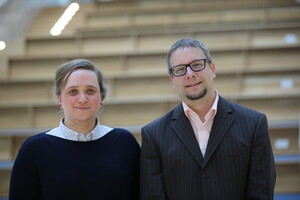Neuropsychopharmacology of event file coding in GTS using EEGbeamforming

The central assumption of this Research Unit is that Gilles de la Tourette syndrome (GTS) might not be viewed as a ‘classical’ movement disorder but should rather be conceptualised as a disorder affecting how perception and action are integrated. It is therefore central to understand how neuropharmacological interventions used to treat GTS affect the neural mechanisms associated with the integration of perception and action. This project examines how action, object and event file coding are modulated by a pharmacological intervention in GTS. The electrophysiological mechanisms underlying these pharmacological effects will be examined using EEG, employing event‐related potentials, time‐frequency decomposition and beamforming methods, as well as methods evaluating the efficiency of information processing from a neural network perspective. We expect that predominantly event and action file coding, but not so much object file coding are affected by pharmacological treatment. Moreover, we assume that tics are integrated in event coding processes in a freely ticcing (unmedicated) state, but not in the medicated state.

